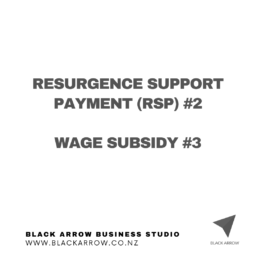
Although sole traders, partnerships, and companies are the typical business structures in New Zealand, there are other alternatives available. If you’re considering using any of these other structures, it’s important to seek professional advice.
Limited Liability Company, often abbreviated as “ltd” at the end of company names, is one of the most widely used business structures. However, there are other options, including unlimited companies and cooperative companies.
An unlimited company’s shareholders have ultimate liability, which implies that they are responsible for settling any debts that the company cannot pay. This liability is incorporated into the company’s constitution.
Unlimited companies are utilised to fulfil certain legal requirements, usually of foreign origin and specific in nature.
Cooperatives are businesses owned and operated by their members for the benefit of all. This approach to doing business has the potential to be successful over a long period and can be applied to almost any industry.
By forming a cooperative, a group of businesses can work together to achieve goals that may not be possible on their own. Although cooperatives generally operate similarly to other business structures, there are some distinctions. For example:
- Cooperatives are owned and managed by their members—the individuals who use the cooperative’s services or purchase its products—not external investors.
- Surplus earnings are distributed to members based on their usage of the cooperative, not the size of their investment or the number of shares they own.
One benefit of operating as a cooperative is increased purchasing power as a group, which enables members to obtain goods at a lower cost.
Co-operative puts artists on the road to success
A group of artists from Taranaki, New Zealand, recognised that working independently was limiting their success and decided to establish a cooperative to market their artwork and share in the profits.
The Waitara Artists Cooperative was created to address the artists’ concerns about insufficient time and resources to promote their art. By collaborating, they were able to pool their resources and create a shared space for marketing their artwork to local and national markets.
This decision proved beneficial as the cooperative allowed the artists to work together, increase their exposure, and expand their business. By sharing costs and control of the cooperative, the members were able to enhance their income and achieve greater success.
How business advisors can help
Choosing a type of company for your business — Companies Register
A trust is established when a person, referred to as the settlor, transfers property to named individuals, known as trustees, to hold for the benefit of beneficiaries chosen by the settlor.
The settlor provides instructions on how the property should be managed and safeguarded for the beneficiaries, and trustees are required to adhere to those instructions.
A trust is assigned a name and is often regarded as a distinct entity similar to a company, but it is not. While trusts are not commonly used to operate businesses, they can be part of a business structure. Seeking expert advice from a lawyer or accountant is recommended when forming a trust.
Anyone can establish a charitable trust to support a charity, but it is prudent to seek professional guidance to determine if this option aligns with your objectives. Consulting with a lawyer or accountant is recommended.
About charitable trusts — Companies Office
Incorporated societies are ideal for sports clubs, social clubs, music and cultural groups, and special interest and purpose organisations.
An incorporated society refers to a group or organisation that has been registered under the Incorporated Societies Act 1908. Once incorporated, it is granted legal authorisation to operate its affairs as an individual entity. This safeguards members from personal responsibility for the society’s debts, contracts, or other obligations, and they hold no personal interest in any assets or property owned by the society.
About incorporated societies — Companies Office
Limited partnerships differ from unincorporated partnerships in that they consist of general partners who bear complete responsibility for the partnership’s debts and obligations, and limited partners who are only liable for the extent of their capital investment in the partnership.
About limited partnerships — Companies Office
Industrial and provident societies usually involve small business owners who operate independently but create the society for mutual benefits, for example, a cooperative taxi society with independent operators benefiting from a shared car insurance scheme.
About industrial and provident societies — Companies Office
Friendly societies are established to assist their members and their families in times of sickness, old age, or bereavement. These societies are funded through the voluntary subscriptions of members and/or donations.
A building society is a mutual organisation owned by its members, which provides financial services, such as mortgages to its members. The society raises funds by selling shares to its members, who typically make payments through subscriptions over a period of time.
About building societies — Companies Office
Credit unions are member-owned financial organisations that offer savings and loan services. To be eligible for membership, there must be a common bond among members, such as living in the same area or working for the same employer. Members invest their savings and receive a dividend.
About credit unions — Companies Office
Do you have an interest in starting a social enterprise?
Social enterprises are businesses that prioritise their mission to create a positive social, cultural, and environmental impact, alongside financial sustainability. Ākina is a valuable resource for measuring impact and promoting positive outcomes.
Find out more — Ākina
Are you struggling with accounting and business management for your business? We are here to help! Get in touch with us to discuss how our expert services can support your business’s success. Contact us today to schedule a free consultation and see how we can add value to your operations.















